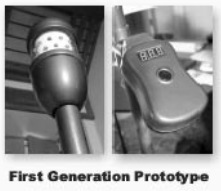2016 |
|
 | Cobb, Corie L; Hey, Jonathan; Agogino, Alice M; Beckman, Sara L; Kim, Sohyeong What Alumni Value from New Product Development Education: A Longitudinal Study Journal Article In: Advances in Engineering Education, vol. 5, no. 1, 2016. Abstract | Links | Tags: engineering education, new product development @article{cobb_what_2016,We present a longitudinal study of what graduates take away from a cross-disciplinary graduate-level New Product Development (NPD) course at UC Berkeley over a 15-year period from 1996-2010. We designed and deployed a longitudinal survey and interviewed a segment of our NPD alumni population to better understand how well our course prepared these alumni for careers in design, innovation, entrepreneurship and product management. We questioned alumni regarding the value of specific NPD skills, methods, and tools taught in the course. This paper presents a quantitative and qualitative analysis of survey and interview data. The results reaffirm the value of engaging students in multidisciplinary design projects as a means for developing the skills needed in today’s competitive NPD environment and highlight the similarities and differences that exist between academic and industry NPD practices. We believe the findings will inform educators about what is valued in NPD courses by graduates now working in industry. |
2008 |
|
 | Cobb, Corie L; Agogino, Alice M; Beckman, Sara L; Speer, Leslie Enabling and Characterizing Twenty-First Century Skills in New Product Development Teams Journal Article In: International Journal of Engineering Education, vol. 24, no. 2, pp. 420–433, 2008. Abstract | Links | Tags: engineering education, new product development @article{cobb_enabling_2008,This paper outlines a New Product Development (NPD) class designed to enable `flat world' skillsÐmultidisciplinary teamwork, rapid prototyping, creativity, business, entrepreneurship and human-centred design. This course aims to develop the skills necessary for successful product development in today's competitive global marketplace. To accomplish a truly multidisciplinary dimension, the graduate course draws students from UC Berkeley's Engineering, Business, and Information Systems departments, as well as from the Industrial Design programme at the California College of the Arts. Students from all of these programmes and colleges join forces on four to five person product development teams to step through the new product development process in detail, learning about the available tools and techniques to execute each step along the way. Each student brings his/her own disciplinary perspective to the team effort and must learn to synthesize that perspective with those of the other students in the group to develop a sound, marketable product or service. Students depart the semester understanding new product development processes as well as useful tools, techniques and organizational structures that support new product development practice. In recent years, we have added material on social entrepreneurship and have encouraged socially-conscious design projects. This paper presents quantitative and |
2007 |
|
 | Cobb, Corie L; Agogino, Alice M; Beckman, Sara L Longitudinal Study of Learning Outcomes in a New Product Development Class Proceedings Article In: ASME/IEEE International Conference on Mechatronic and Embedded Systems and Applications and the 19th Reliability, Stress Analysis, and Failure Prevention Conference, pp. 643–651, ASME, Las Vegas, Nevada, 2007, ISBN: 0-7918-4805-1. Abstract | Links | Tags: engineering education, new product development @inproceedings{cobb_longitudinal_2007,This paper reports on a longitudinal study of lessons learned from a graduate-level New Product Development course taught at the University of California at Berkeley, comparing lessons learned by students during the course with alumni perceptions one to ten years after graduation. Previous research on student learning outcomes in New Product Development (NPD) found that on the last day of class students identify working in multifunctional teams and understanding user needs as their most important lessons learned. This study raises the question of whether or not students maintain the same emphasis on learning outcomes once they have moved on to careers in industry. To answer this question, we conducted 21 in-depth interviews with alumni who took the course between 1995–2005 and are now working in industry. A qualitative and quantitative analysis of the alumni interviews reveals that former students still highly value what they learned about team work and understanding user needs, but see more value in tools for concept generation, prototyping, and testing after gaining work experience. The results reaffirm the value of engaging students in multidisciplinary design projects as a vehicle for developing the professional skills needed in today’s competitive new product development environment. |
2016 |
|
 | What Alumni Value from New Product Development Education: A Longitudinal Study Journal Article In: Advances in Engineering Education, vol. 5, no. 1, 2016. |
2008 |
|
 | Enabling and Characterizing Twenty-First Century Skills in New Product Development Teams Journal Article In: International Journal of Engineering Education, vol. 24, no. 2, pp. 420–433, 2008. |
2007 |
|
 | Longitudinal Study of Learning Outcomes in a New Product Development Class Proceedings Article In: ASME/IEEE International Conference on Mechatronic and Embedded Systems and Applications and the 19th Reliability, Stress Analysis, and Failure Prevention Conference, pp. 643–651, ASME, Las Vegas, Nevada, 2007, ISBN: 0-7918-4805-1. |

